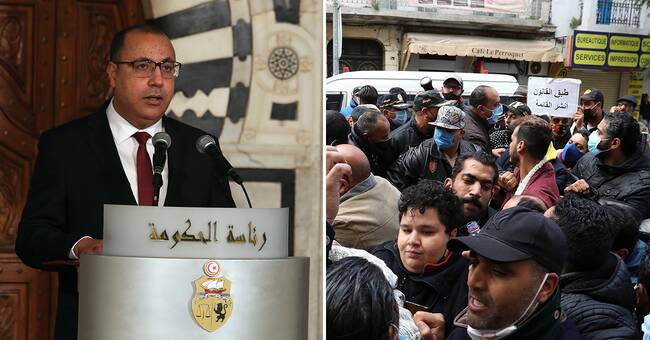Ten years ago, demonstrations in Tunisia ignited the spark for the Arab Spring.
The Jasmine Revolution, as the protests came to be called, then turned against widespread poverty, unemployment, corruption and injustice.
Among other things, they led to the country's then president Zine El Abidine Ben Ali resigning and fleeing the country.
A decade later, the population is once again protesting against difficult living conditions.
Fired tear gas
In the coastal town of Sousse, security forces are said to have fired tear gas at hundreds of angry protesters who blocked roads and burned car tires.
Several young men are also said to have broken into stores, writes Reuters.
Violent demonstrations have also taken place in several places in the capital Tunis and in a number of cities in the northern part of the country.
Government reshuffle
The protests are putting pressure on the country's current president Hichem Mechichi, who earlier today appointed twelve new ministers in a government reshuffle aimed at pouring oil on the waves as political tensions in the country have grown stronger.
The Jasmine Revolution meant a transition to a more functioning democracy in Tunisia, but the economic situation in the country has deteriorated and the country is now facing a serious economic crisis.

